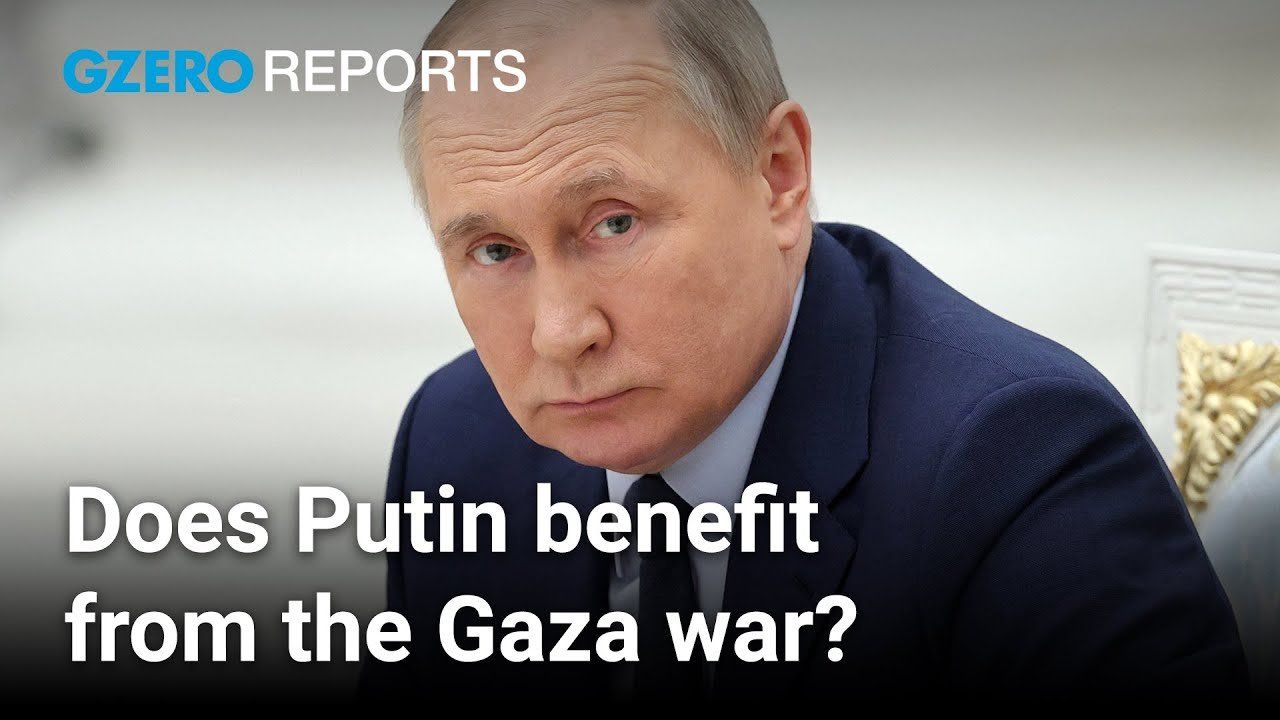
Over the past few weeks, the conflict in Gaza has drawn attention away from what used to be the most covered war in the world: Russia's invasion of Ukraine. You know who's not mad about that? Russian President Vladimir Putin.
Even before the Hamas attacks, Western support for Ukraine was starting to waver, GZERO's Alex Kliment explains. Now, Putin is perfectly happy to see Western governments and media distracted by the Middle East. What's more, a little unrest in the region always bumps up prices for Russian oil.
But there are a few reasons why this latest conflict in the Holy Land might not be a blessing for Putin. For one thing, it forces him to choose sides in a way that he doesn't relish. It took Putin 10 entire days to call Israeli Prime Minister Benjamin Netanyahu with condolences after the October 7th attacks. And while Russia condemned the Hamas rampage, Putin has also welcomed Hamas officials in Moscow and called for a ceasefire, something both the US and Israel oppose.
On the one hand, bending towards the Palestinians puts Putin firmly in line with mainstream opinion in the Arab world and the broader global south, where sympathy for the Palestinian cause is strong. On the other hand, antagonizing Israel could lead the government there to change its mind about giving advanced weapons to Ukraine, something that Prime Minister Netanyahu has so far chosen not to do.
And then there's the risk of this conflict spiraling out of control entirely. A wider regional war between Israel and Iran could turn into a nightmare for Putin. But don't forget, Russian forces are currently propping up the Assad regime in Syria, an ally of Iran that could easily be drawn into a wider war with Israel.
In short, Vladimir Putin is fine with Middle Eastern instability that puts the heat on his Western adversaries. Unfortunately for him, he can't count on staying out of the fire himself.
Watch more about the situation in the Middle East on the upcoming episode of GZERO World with Ian Bremmer.
Catch GZERO World with Ian Bremmer every week at gzeromedia.com/gzeroworld and on US public television. Check local listings.
- Is war in Gaza good for Russia? ›
- Biden seeks urgent aid package for Israel, Ukraine ›
- Putin's endgame in Ukraine ›
- Ian Explains: Putin's partners and allies ›
- What We’re Watching: Ukraine latest, Israel blocks arms to Kyiv ›
- Will Israel be forced to choose between Russia and Ukraine? ›
- Israel, Iran, and the metastasizing war in Ukraine ›
- Putin wins another classic Soviet election - GZERO Media ›